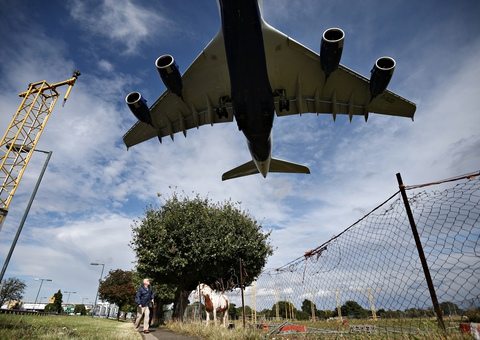British Airways’ owner has called on government to break up Heathrow’s “monopoly” of infrastructure, suggesting that other companies could run the different terminals to create competition and cheaper flights for consumers.
IAG said the airport’s planned expansion could allow independent firms to create and run new terminals more effectively than Heathrow’s current owners, with lower costs to airlines.
The proposal from IAG, Heathrow’s dominant customer, to the regulator, the Civil Aviation Authority, is the latest salvo in its battle to ensure that charges remain low when a third runway is built. IAG argues that fares could be driven up by escalating expenses, but that breaking up Heathrow could lower this risk.
“Heathrow’s had it too good for too long and the government must confirm the CAA’s powers to introduce this type of competition,” said Willie Walsh, IAG chief executive. “This would cut costs, diversify funding and ensure developments are completed on time, leading to a win-win for customers.”
BA runs a terminal at JFK airport in New York, and Walsh said the proposal would ensure that Heathrow focused on cost control. “This is not rocket science. Most major US airports have terminals owned or leased by airlines and there are European examples at Frankfurt and Munich airports. There’s absolutely no reason why this cannot happen at Heathrow.”
The airline has urged the government to make explicit in its national policy statement approving a third runway that airport charges will be capped at current prices. While the transport secretary, Chris Grayling, has said landing charges “should be kept as close as possible to current levels”, the Airports Commission envisioned a steep rise in charges to pay for new infrastructure. Heathrow has since pledged to deliver its runway for £14.3bn.
A spokesperson for Heathrow said the airport was working hard to keep expansion costs down, but added: “Anyone who has had the misfortune of connecting through JFK airport will know this is not a passenger experience we should seek to replicate at Heathrow. At Munich and Frankfurt airports, only one airline dominates – again, something which is against the interests of our passengers.”
Meanwhile, another influential backer of expanding the airport said he would now prefer to build at Gatwick than pursue the current scheme. Jock Lowe, who promoted the Heathrow Hub runway plan shortlisted by the Airports Commission, had previously said that the most important thing was that Heathrow was enlarged. However, he said that the plans had failed to address operational concerns over taxiways and flight paths and would not deliver the promised capacity or respite from noise.
Lowe said: “I imagined Heathrow had better solutions to these issues. But they haven’t published a safety case or given any answers. I worry that at some point it will grind to a halt. There isn’t a solution to some of them – it’s whether government makes a decision with full knowledge of the problems.
“I’d do Gatwick. You can’t have expansion at any price. As it stands, without a safety review, it’s very difficult to back it.”
The Heathrow spokesperson said they were still consulting on designs, including of taxiways, but all would increase capacity safely. “We have unrivalled experience operating a major airport and we are completely confident that we can safely operate 740,000 annual flights with a third runway. This was confirmed independently by the Airports Commission after undertaking the most extensive, in-depth review of aviation in a generation.”
Heathrow’s third runway plans face more parliamentary scrutiny this week when the transport select committee questions Heathrow executives on Monday and Grayling on Wednesday.
A vote is due to be held this summer in the Commons on the national policy statement. Although Heathrow is confident that a majority of MPs would back expansion in a free vote, prominent Conservatives are likely to vote against, and Labour may yet decide to oppose it as a party, with the leadership vehemently anti-expansion.











